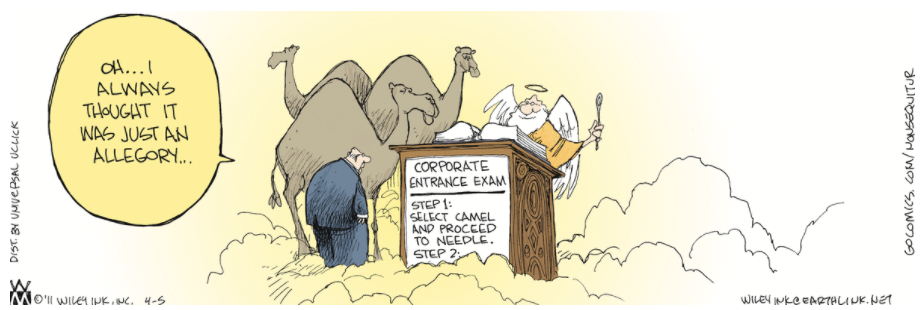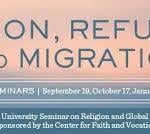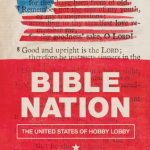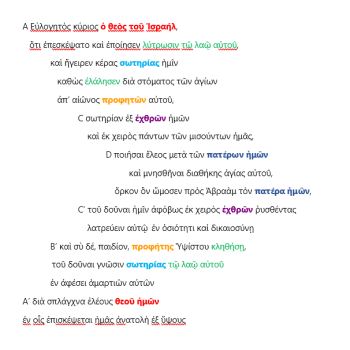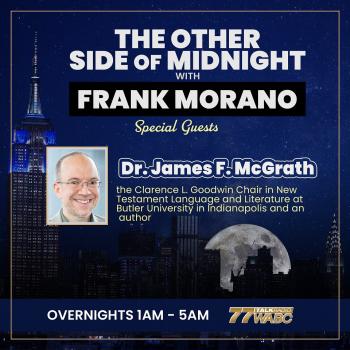A while back in my Sunday school class, I sought to challenge the idea that anyone takes the Bible literally, by focusing on some of the things that Jesus says about topics like poverty and possessions.
We started with Jesus’ saying about a camel passing through the eye of a needle. I tried to get everyone to face the literal starkness of Jesus’ woes against the wealthy without rushing to explain them away. Eventually we got to the contrast between Matthew’s and Luke’s beatitudes. In the past, I’ve gone from viewing Matthew’s “blessed as those who hunger and thirst for righteousness” as a spiritualization away from the raw challenge of pronouncing blessing upon the hungry, to viewing it as an adaptation that allows it to be applicable to those who are not poor but who may nonetheless long for justice, who may hunger to be participants in a reality in which hunger and other injustices have been abolished.
But in this particular class, I started to wonder if Matthew’s version isn’t in fact more radical rather than less. After all, one can be without food and yet not become an activist. Matthew’s version, on the other hand, seems to imply not just longing and desire but action. If you’re hungry, you’ll act to get food. If you’re hungry for justice, you’ll act to bring it about, for yourself and others.
On a related note, Fred Clark blogged recently about one reason why some churches have the impression that social justice is something unbiblical (whether simply not in the Bible, or actually antithetical to its teachings). Some Bibles rarely if ever render the relevant words in Hebrew or in Greek as “justice,” preferring other terms such as “righteousness” which are susceptible to interpretation in individualistic and pietistic terms.
The same point that I have made here about hungering and thirsting for righteousness/justice can also be made about merely happening to be poor, vs. adopting a particular outlook of humility that can be labeled “poor in spirit.” Indeed, one might suggest that Matthew is extrapolating from Jesus’ own approach to scripture, looking beyond the letter’s legislation about outward behavior to a deeper transformation, applying that approach that stems from Jesus to Jesus’ own words, with a similarly transformative effect.
Finally, let me share this Non Sequitur comic:
